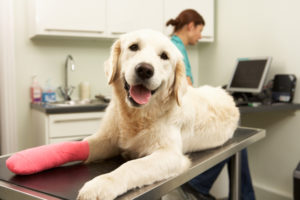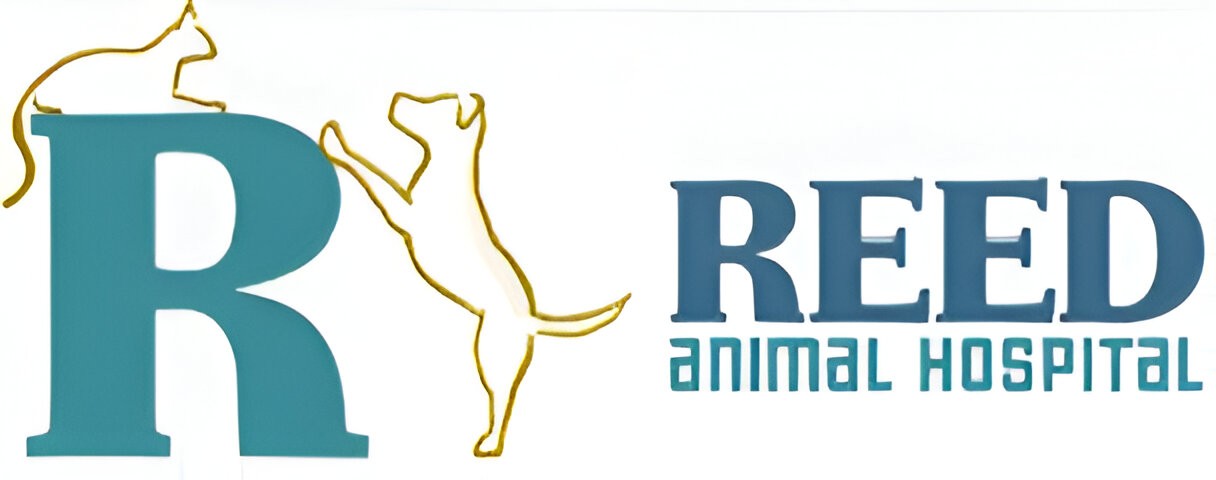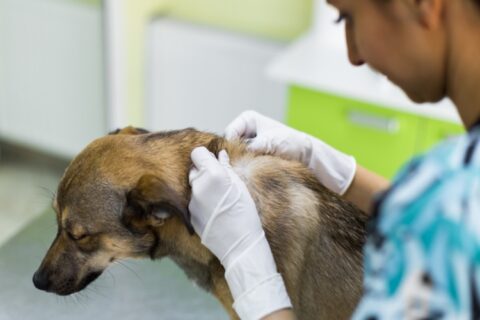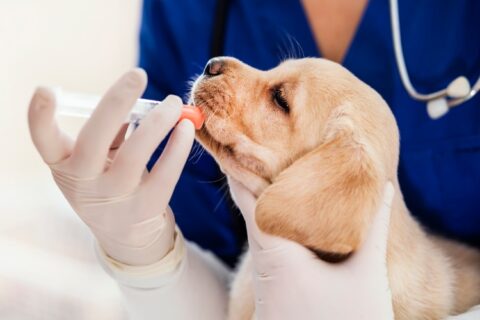How to Help Your Dog Heal After ACL Surgery

If you enjoy watching or playing sports, odds are you’re familiar with ACL tears, one of the most common knee injuries in athletes. In humans, a torn anterior cruciate ligament (ACL) usually occurs suddenly as a result of landing wrong or abruptly changing directions. The knee joint ligament in dogs, known as the cranial cruciate ligament (CCL), typically sustains injury more gradually. A partial tear will often worsen little by little due to physical activity or genetics.
Fixing torn ACLs in humans requires ACL surgery. In dogs, CCL injuries require tibial plateau leveling osteotomy (TPLO) surgery. At our animal hospital, most dogs can return home the same day. Total recovery period is about 12 to 16 weeks. Here’s how to help your dog heal after TPLO surgery.
- Limit physical activity for the first two weeks: Your pooch will have sutures during this time, so limit outdoor activities to potty breaks. Keep your dog calm when spending time inside as well.
- Assess your sleeping arrangements: If your dog sleeps in his own bed on the floor, you may not need to make a change. However, if your pet shares your bed, jumping that high while recovering from TPLO surgery might be too much. To avoid disrupting your dog’s routine, you may choose to relocate your mattress to the floor temporarily. Consider sleeping with your dog’s leash wrapped around your wrist as well, so if he tries to get up at night, you’ll awaken.
- Think about altering your furniture: Is your dog accustomed to sitting by you on the couch? As with your bed, the jump may be too high. To accommodate your pup, consider moving the cushions to the floor. If your dog likes to jump on any other furniture, remove it for a few weeks so he’s not tempted during the recovery period.
- Block the stairs: Install a baby gate or other barrier to prevent your dog from injuring his delicate knee by trying to follow you upstairs.
- Keep an eye on your dog: If you work from home, great—you can look after your dog around the clock. If not, be sure to crate your pet before you leave for work.
- Combat boredom safely: With physical exercise on hold, keep your dog occupied with other distractions, such as chew toys or a peanut butter-filled Kong.
- Walk your pets separately: Do you have more than one dog? Once walks are permitted again, take them out individually so the dog healing from surgery isn’t persuaded to walk faster than his knee will allow.
Is your dog limping or sitting abnormally? Do you notice a clicking sound when he walks? If so, his knee might be hurting him. Trust Reed Animal Hospital to diagnose your dog’s condition and perform TPLO surgery, if necessary. For more information about our surgical procedures, or to schedule an appointment, please call us in Campbell, CA at 408-369-1788 or in Saratoga, CA at 408-647-2906. You can also contact us online.



